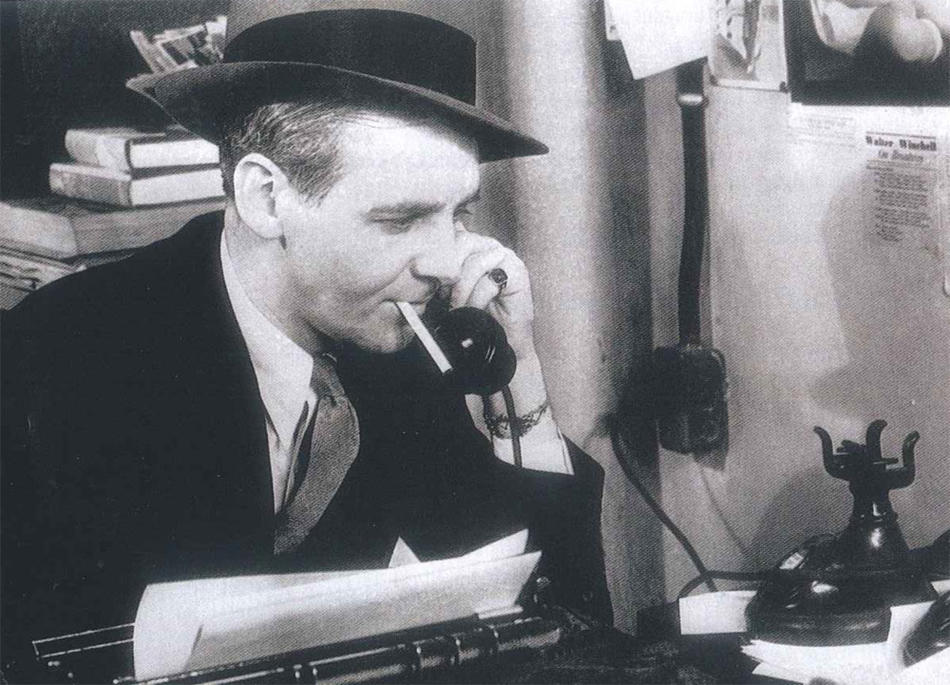The Depression was at its worst when I was at Columbia in 1937. It was a sad year for most of the country, but I was elated to be a student at the Graduate School of Journalism, considered to be the best in the world.
Tuition cost $400 a year, a sum that I borrowed from my father. We struck a deal where I would reimburse him $20 each month. Tutoring kids for their bar mitzvahs, I was able to earn $12 to $14 a week, and it just barely covered my expenses.
I spent a dime for subway fares on the three or four days a week I taught, and I rented a room on 113th Street for $10 a month — that included the use of the landlady’s refrigerator, which smelled of fish. One of the kids I tutored lived in the Bronx. I taught him twice a week, and each Thursday I was given a white envelope containing four brand-new dollar bills. I used 65¢ to buy myself a heavenly meal in a kosher restaurant around the corner, the only pleasure I got out of this dull pupil and his even duller family.
My courses included news reporting, editorial writing, feature writing, the laws of libel, copyediting, and research methodology. There were 60 students in our class, including a Catholic priest, a German baroness who enunciated each word with the precision of a Swiss watch, a retired editor from Ohio, and several Yale and Harvard graduates who overawed me. I felt like a buck private among generals.
It was not all work and no play that year. I particularly recall two highlights. One late-winter afternoon I was headed for the 8th Avenue subway munching on my lunch, a “Depression apple.” It was snowing buckets, and the walking was slow. I reached Morningside Drive, and out of nowhere I was pelted by a barrage of snowballs.
Turning around, I was hit in the face by a snowy missile. Instinctively, I hurled my half-eaten apple at the throwers, but it fell short and struck an old gent square on his fedora. In an instant I recognized it was Dr. Nicholas Murray Butler, president of Columbia University. I took off like Paavo Nurmi, a famous Finnish runner of the time, and the good Dr. Butler never caught me.
The other event occurred during an assignment to report on the reaction of the Broadway crowd to the just-opened Walt Disney movie Snow White and the Seven Dwarfs. I took the subway down to 50th Street and entered Lindy’s restaurant, known for its cheesecake and colorful patrons. I circulated among some tables, but no one had seen Snow White.
One man, a wiseguy type, said to me, “You see that table against the wall? That’s where the Big Man himself sits. Walter Winchell in person.”
In those days, Walter Winchell was the most widely read, courted, and dreaded reporter of his time. He wrote a gossip column, first for the New York Graphic and later the New York Daily Mirror. For 30 years he had a radio program that spread his juicy gossip to a world audience. They didn’t come any bigger than Walter Winchell, and he knew it.
I really didn’t want to go but felt I had to. I approached his table.
“Mr. Winchell,” I asked nervously. “I was wondering whether you saw the new Disney film Snow White and the Seven Dwarfs.”
“Who wants to know?”
“I do,” I said. “I’m a reporter.”
“Funny, I’ve never seen you before. What paper are you with?”
“I’m a student at Columbia, the School of Journalism.”
“Oh. You’re one of those, are you?” he snapped.
“Yes, I am,” I said resolutely. But I was scared to death.
“Well, you don’t look like much of a newspaperman to me,” he said. “You look more like a poet than a reporter.”
“Thanks, Mr. Winchell,” I said. “I take that as a compliment.”
“Well it’s not, sonny. A reporter is a reporter, and a poet is a poet.”
“That’s true, Mr. Winchell. But sometimes a reporter can be both.”
“Not in my book, kid.”
“Have you ever heard of Shakespeare?” I asked.
“Don’t be a smart-ass with me, kiddo,” he said, obviously annoyed.
“He wrote eight plays about all the King Henrys,” I said, “which was pretty good reporting to me.”
“Okay, kid,” he said angrily. “The interview is over.”
I was not going to let him get the last word. “So what did you think of Snow White and the Seven Dwarfs?”
He beckoned to the waiter.
“Get rid of him, Max.” The waiter took my elbow and walked me to the door. The interview was over. I felt like Jean Valjean in chains. As I got to the door he said, “Don’t come back, jerk.”
The next day I reported the incident to the class and became something of a folk hero for probably 48 hours. That’s fame for you.
Graduation was in early June. My parents attended, and my father canceled the money I still owed him for tuition. All was forgiven. He was a father, but also a statesman.



